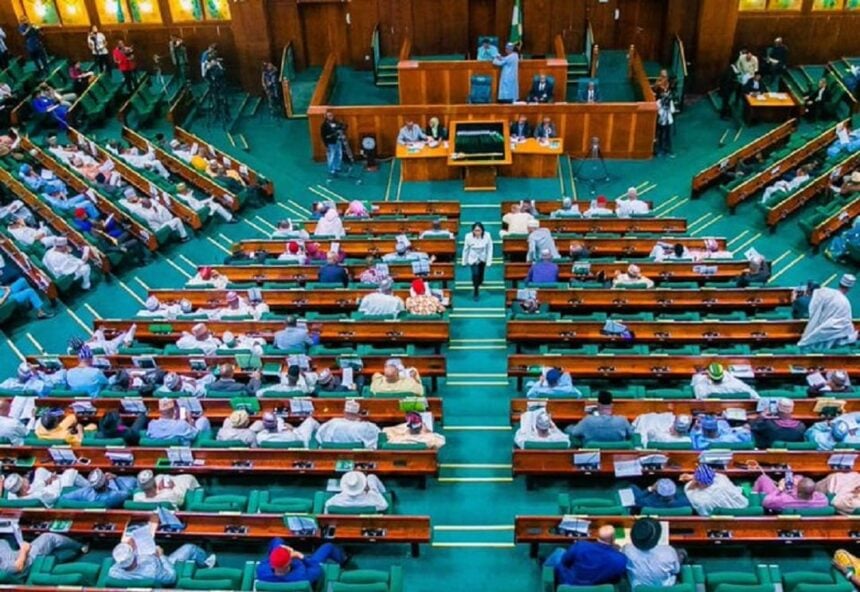…Prioritise electoral, judicial, governance reforms
In a major step toward amending the 1999 Constitution, the Speaker of the House of Representatives, Hon. Abbas Tajudeen, alongside the Deputy Speaker and Chairman of the Special Ad-hoc Committee on Constitution Review, Benjamin Kalu, will on Saturday flag off the zonal public hearing for the North-West region.
The constitution review hearings marks the beginning of a two-phase constitutional amendment consultation process organised across Nigeria’s six geopolitical zones. The hearings aim to gather citizen input on over 80 proposed bills, representing wide-ranging reforms covering electoral law, governance structure, human rights, judicial efficiency, security, and local government autonomy.
The northern regional hearings, spanning the North-West, North-East, and North-Central zones, will hold from July 11 to 13 across six locations, while the Southern regional hearings for the South-West, South-East, and South-South regions are scheduled from July 18 to 20, culminating in a National Public Hearing in Abuja on July 21, 2025.
According to Kalu, the exercise is “the most inclusive and ambitious constitutional reform process in recent history,” aimed at aligning Nigeria’s foundational laws with present-day realities.
Key areas of focus: Electoral reforms: Twelve bills propose transformative changes, including the conduct of all general elections on a single day, provisions for independent candidacy, and granting INEC powers to conduct local government elections. New regulatory bodies like the Political Parties Registration and Regulatory Commission (PPRRC) and the Electoral Offences Commission (EOC) are also proposed to strengthen oversight and enforcement mechanisms in the political space.
Other reforms seek to eliminate the dual roles of party executives holding elected offices and to establish more flexible election timelines regulated by law rather than the Constitution.
No fewer than 14 bills focused on Local Government Autonomy seek to grant financial and political autonomy to local governments. These include restructuring local government systems with executive and legislative arms, independent local electoral commissions, and amendments to the First Schedule to reflect changes in local government boundaries and names in several States.
The largest thematic area, comprising 21 bills, seeks to improve judicial efficiency and independence, including legislative proposals which seek to grant final appellate jurisdiction on some matters to the Court of Appeal, expanding the size of superior courts, and allowing elevated judges to conclude cases they started in lower courts.
Notably, there are suggestions to remove the Chief Justice of Nigeria (CJN) and State Chief Judges from their respective Judicial Service Commissions and involve the National Judicial Council in determining judges’ remuneration.
As part of ongoing efforts to address the insecurity challenges bedevilling the country, one of the more high-stakes proposals is the bill for establishing state police forces, which would allow each state to operate its own law enforcement structure.
On devolution of powers, no fewer than 10 bills focus on transferring key responsibilities to state governments—including natural resource control, water and tourism management, taxation, and road construction—while allowing for revenue-sharing with the federal government.
Fourteen bills seek to enhance government accountability and transparency. Proposed changes include mandatory annual audits by MDAs, population censuses every 10 years, separation of the office of the Attorney-General of the Federation from the Minister of Justice, and a timeline for budget presentations.
Two proposed bills, which focused on fiscal reforms, seek increased fiscal transparency through mandatory publication of audit reports and progress tracking of funds sourced through credit and borrowing.
After gathering inputs from stakeholders, civil society, and Citizens at the zonal hearings, the bills will undergo harmonisation before presentation for consideration and voting in both chambers of the National Assembly.
Two-thirds of the 36 State Houses of Assembly must also ratify any proposed constitutional amendments before they become law, making public support and state-level advocacy crucial for success.
ALSO READ TOP STORIES FROM NIGERIAN TRIBUNE
WATCH TOP VIDEOS FROM NIGERIAN TRIBUNE TV
- Relationship Hangout: Public vs Private Proposals – Which Truly Wins in Love?
- “No” Is a Complete Sentence: Why You Should Stop Feeling Guilty
- Relationship Hangout: Friendship Talk 2025 – How to Be a Good Friend & Big Questions on Friendship
- Police Overpower Armed Robbers in Ibadan After Fierce Struggle






